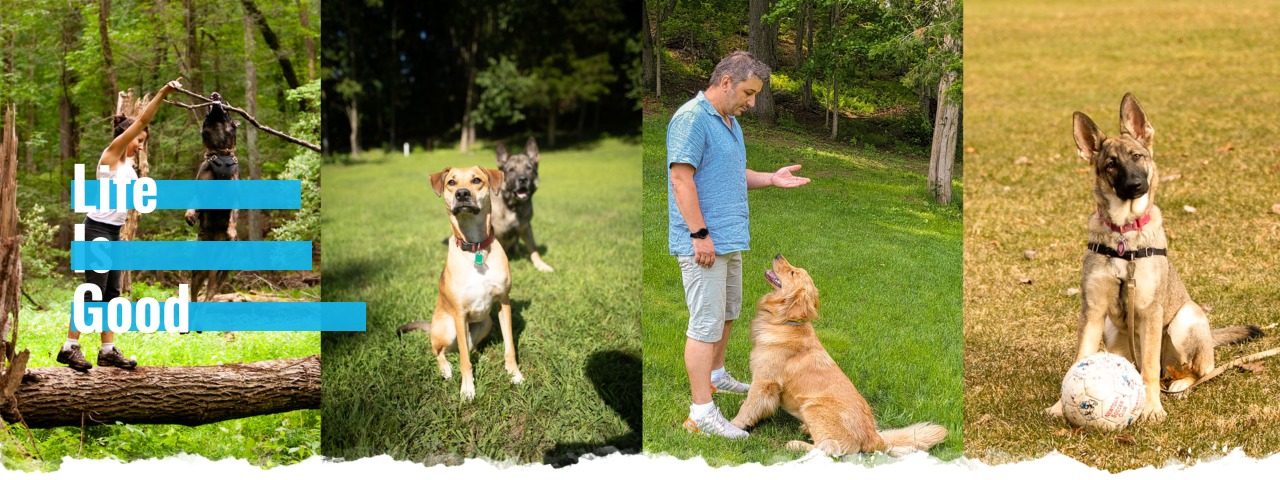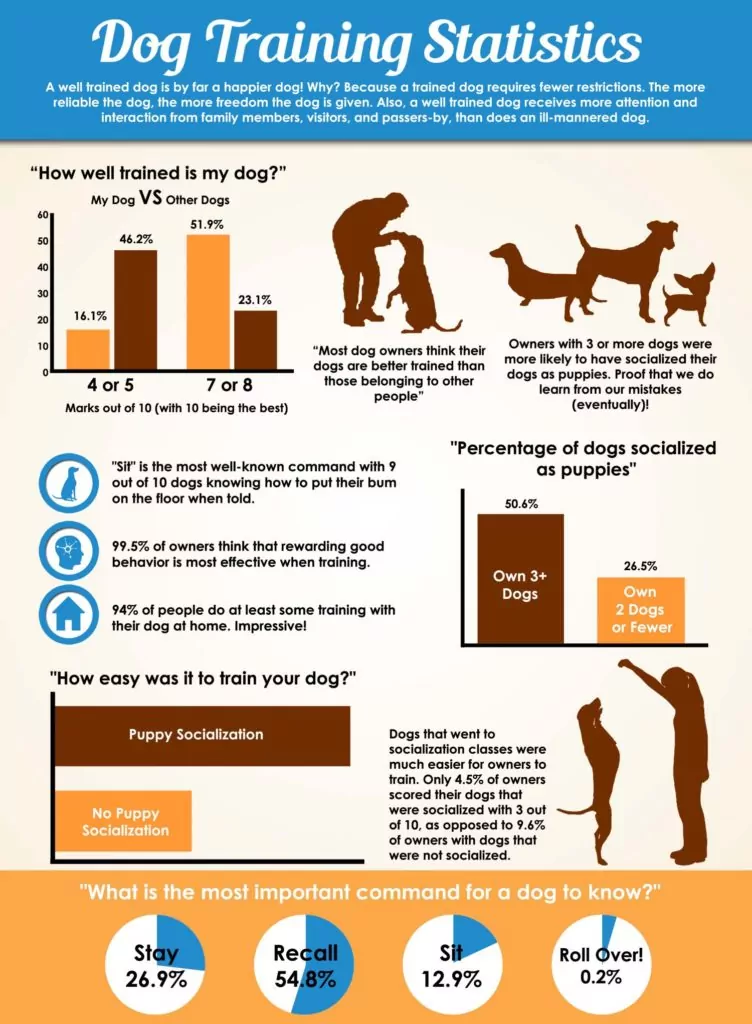Dog Training For Dogs: Vital Abilities for Your Young puppy's Development
Dog Training For Dogs: Vital Abilities for Your Young puppy's Development
Blog Article
Top Canine Training Methods for each Stage of Your Pet Dog's Life
Reliable canine training is vital at every stage of a pet's life, as each stage presents special difficulties and chances for development. It is crucial to recognize that training must develop alongside a pet dog's advancement, guaranteeing that methods remain effective and relevant.
Puppy Training Fundamentals
Puppy training fundamentals prepared for a mannerly grown-up pet and entail numerous key components that ought to not be forgotten. The initial phase of training focuses on establishing a solid bond between the young puppy and its proprietor, which is important for effective communication. Socializing is paramount; subjecting puppies to various atmospheres, individuals, and other pets aids them establish confidence and versatility, minimizing the probability of behavioral concerns later on in life.
Basic commands, such as sit, stay, and come, develop the structure of obedience training. Using positive support strategies, such as treats and praise, motivates wanted behaviors and cultivates a favorable understanding experience. Consistency in commands and training sessions is crucial, as young puppies flourish on regular and framework.
Additionally, home training is a crucial element of puppy training. Establishing a normal timetable for bathroom breaks and making use of assigned areas can assist decrease accidents and promote excellent practices. Overall, an all-around method to puppy training, integrating house, obedience, and socialization training, establishes the phase for a well-adjusted adult pet, ensuring an unified relationship in between the animal and its proprietor.
Teenage Behavior Monitoring
As pups mature right into teenagers, their behavior can change considerably, typically providing brand-new challenges for owners. This developmental stage, normally occurring between 6 months and 2 years, is marked by heightened energy degrees, curiosity, and a growing sense of independence. Comprehending these adjustments is vital for reliable habits management.
Teens might display rebellious propensities, such as disregarding commands they previously understood or taking part in harmful behaviors. Consistency in training continues to be critical; enhancing discovered behaviors with favorable support can help counteract these difficulties. Brief, engaging training sessions are important to preserve their rate of interest and focus.

Additionally, establishing a structured regimen can dramatically boost a teenage dog's feeling of protection. Normal exercise is crucial to funnel their energy favorably, lowering the chance of undesirable actions. By using these techniques, proprietors can effectively browse the intricacies of teen behavior, promoting a well-adjusted, pleased canine buddy.
Grown-up Pet Obedience Techniques

Positive reinforcement continues to be an essential method; gratifying etiquette with treats, appreciation, or play encourages compliance. Uniformity is important; the same commands and benefits should be utilized by all relative to prevent confusion.
Including training into day-to-day regimens can additionally work. Method commands throughout walks or dish times, enabling training to blend perfectly into daily life. Taking part in organized activities, like dexterity programs or obedience classes, can even more enhance a pet dog's skills while giving valuable socializing opportunities.
It is essential to identify that adult canines may additionally show stubbornness or complacency. Changing training techniques to preserve their interest, such as differing rewards or presenting new commands, can aid suffer motivation. On the whole, a continuous dedication to obedience training will foster a well-behaved and balanced adult pet.
Senior Pet Adaptation Approaches
Acknowledging the distinct demands of elderly pets is essential for ensuring their convenience and well-being. As canines age, they may experience a decline in mobility, vision, and cognitive function, requiring tailored adjustment strategies.
First, consider customizing the living setting. Guarantee that the home is accessible and secure; remove challenges and give non-slip surfaces to stop falls. Furthermore, think about making use of ramps or actions to aid them access their favored areas.
Second of all, exercise should be changed to represent lowered stamina and joint wellness (Dog Training For Dogs). Take part in shorter, extra constant strolls, and incorporate gentle activities like swimming, which can be useful for arthritic joints
In addition, psychological excitement continues to be important. Use simple problem playthings or engage in scent work to maintain their minds sharp, while staying clear of frustrating jobs that may discourage them.
Lastly, routine our website vet examinations are important to check wellness changes and readjust care regimens appropriately. By applying these adaptation techniques, you can enhance the lifestyle for your elderly dog, guaranteeing they age with dignity and comfortably.
Lifelong Knowing and Enrichment
While pets of all ages benefit from discovering and mental excitement, long-lasting enrichment is specifically vital for keeping cognitive health and wellness and psychological wellness in both senior and younger dogs. Involving tasks not just boost a pet dog's high quality of life however additionally enhance the bond between the canine and its owner.
Enrichment can take various forms, including interactive playthings, challenge feeders, and scent work, which promote a dog's detects and urge analytic. Routine training sessions, integrating new commands or tricks, maintains their minds sharp and promotes a sense of success. Socializing with other canines and people is just as crucial, as it helps stop behavioral problems and promotes flexibility.
Furthermore, including exercise into a dog's regimen is crucial for overall wellness. Activities like agility training, bring, or long strolls supply both psychological and physical stimulation, making sure pet dogs continue to be satisfied and engaged.
Lastly, think about varying the environment by presenting new locations for walks or playdates. This modification can reignite a canine's interest and interest for expedition. Long-lasting understanding news and enrichment not just add to a satisfying life but additionally promote a harmonious relationship with your canine buddy.
Final Thought
Efficient dog training techniques evolve throughout a pet's life, resolving the distinct needs of each developing phase. Stressing regular psychological stimulation, socialization, and physical workout fosters a balanced and fulfilling life for canines.
Effective canine training is important at every phase of a canine's life, as each phase presents one-of-a-kind challenges and possibilities for growth.Puppy training basics lay the foundation for a well-behaved adult canine and entail a number of key elements that should not be overlooked. On the whole, a well-rounded method to puppy training, integrating socialization, obedience, and residence training, establishes the phase for a well-adjusted adult canine, making certain a harmonious check my reference relationship in between the pet dog and its proprietor.
Many canine proprietors might find that grown-up pets, while usually even more stable in behavior than their teen counterparts, still call for constant training to preserve obedience and excellent manners.Efficient dog training methods advance throughout a pet's life, attending to the special demands of each developing stage.
Report this page